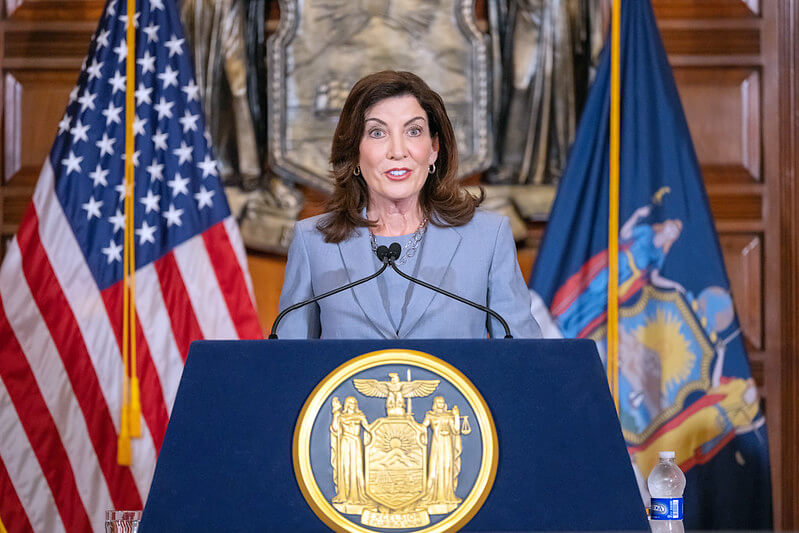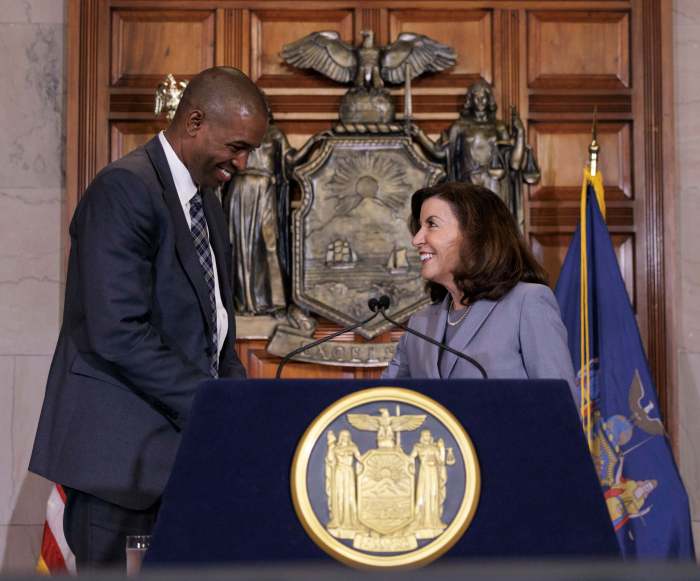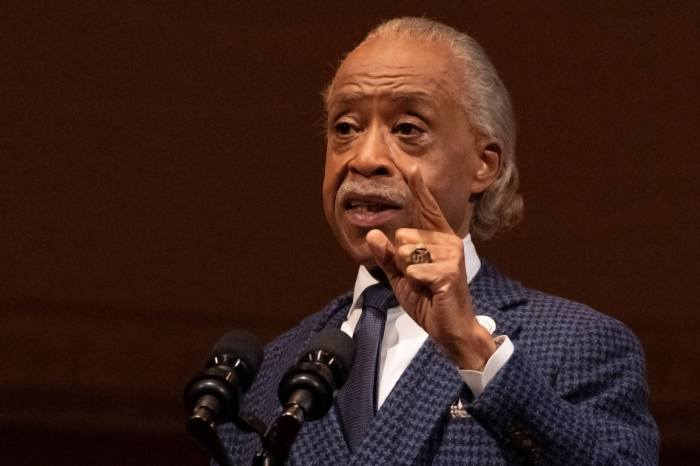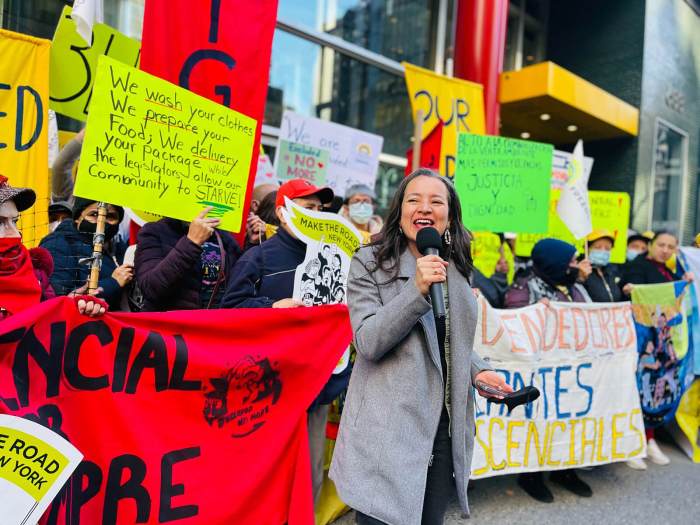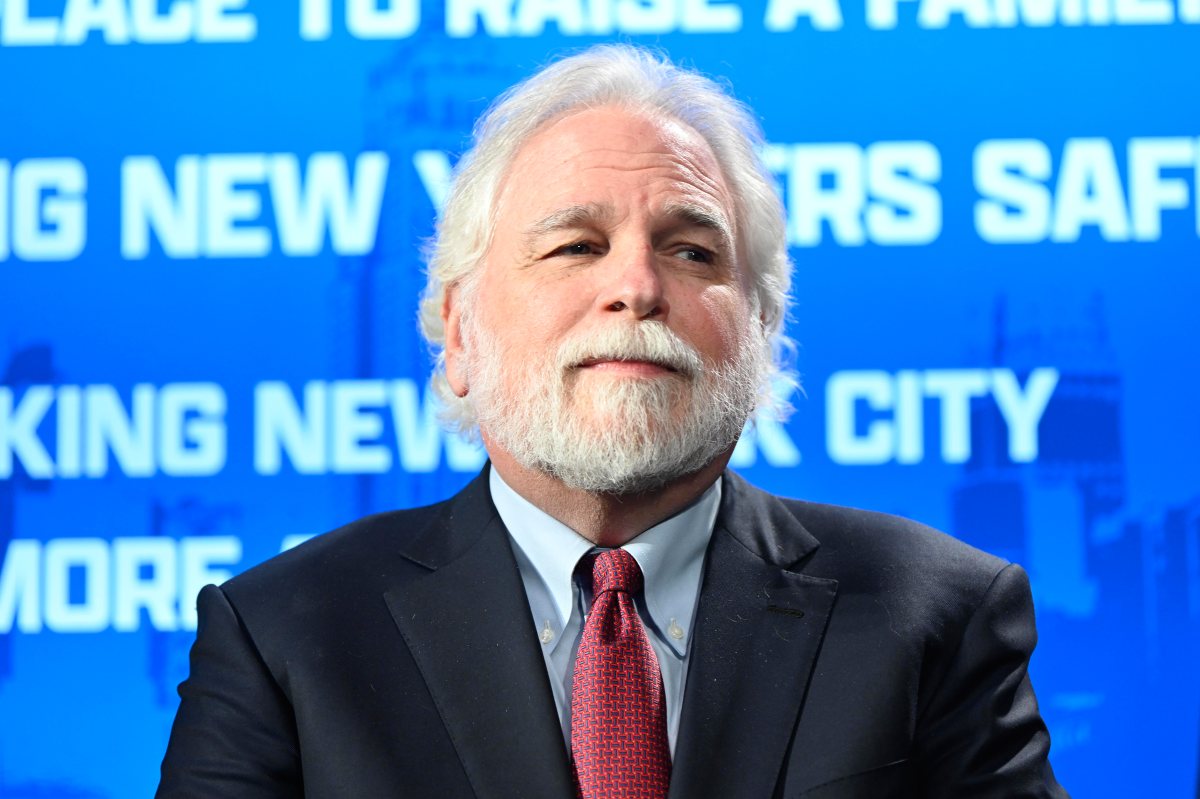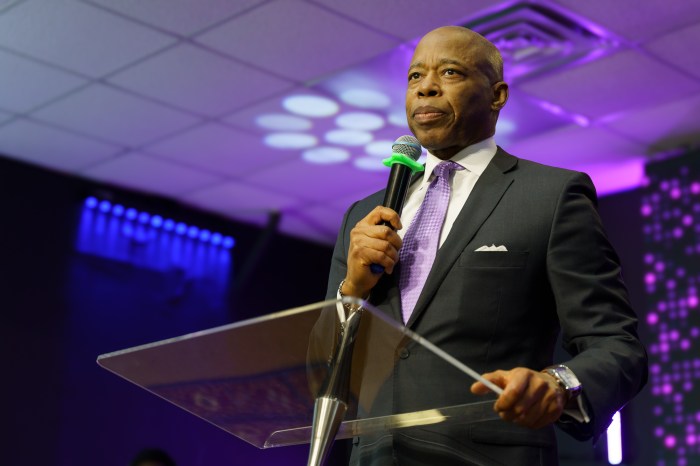Gov. Kathy Hochul on Tuesday announced several executive actions to promote housing growth as part of her ongoing commitment to addressing New York’s housing crisis, largely driven by a severe housing shortage.
The actions include a program to advance residential projects halted by the expiration of 421-A that include affordable housing in the Gowanus neighborhood in Brooklyn; an executive order establishing preference in certain discretionary funding programs for localities across the state that comply with a new “Pro-Housing Community” certification process; a new requirement that all State entities identify the potential for their state-owned lands to support housing; recent and forthcoming regulatory initiatives to identify opportunities for greater efficiencies to promote housing growth; and the launch of the beta version of a new, interactive portal to collect and share community-level housing and zoning data and information on an ongoing basis.
The governor said she remains committed to developing creative solutions in partnership with the Legislature to help New Yorkers find and keep a decent home that they can afford.
These actions build on investments secured by Gov. Hochul in the FY 2024 Budget to make the state more livable and affordable for all New Yorkers.
“New York’s housing crisis isn’t going away, and I’m committed to doing everything in my power to make New York more affordable and livable for all,” Gov. Hochul said. “These executive actions are an important first step to expand our housing supply and promote housing growth. But make no mistake: to fully address the scope of this crisis, we need action from the legislature — and I’m committed to continuing our work on housing in the coming months.”
Facilitating Development of Housing, Including Affordable Housing, Through Gowanus Program
The governor announced a program aimed at targeting specific benefits and housing obligations in line with the former 421-a(16) program for development proposals currently vested in the expired program in the Gowanus neighborhood in Brooklyn.
Proposals would respond to a request for applications administered by Empire State Development. For eligible proposals, Empire State Development would purchase the privately owned properties for a nominal fee, lease the property back to the original owners for a long-term lease term that would parallel the 421-a(16) benefit period, and deed the property back to the original owner at the conclusion of the benefit period. In exchange, the property owner would make payments equivalent to the reduced taxes the property would have paid if it were to complete construction prior to the expired 421-a(16) program completion deadline of Jun. 15, 2026.
Proposals would need to comply with affordability, labor, and other requirements similar to those of the 421-a(16) program and meet certain eligibility criteria, including but not limited to: Located in the Gowanus rezoning area; currently vested in expired 421-a(16) program; building capacity of at least 50 housing units; contains affordable housing in compliance with 421-a(16), however participation will require affordable housing units to remain permanently affordable; full entitlement under City zoning and applicable regulatory codes; and ability to comply with Empire State Development’s Minority and Women-Owned Business Enterprises contracting requirements.
This program will be presented for approval to the Empire State Development Directors later this week. Each proposal would be subject to a public review process that would include Empire State Development board and Public Authorities Control Board approvals.
In 2021, the New York City Council passed an expansive rezoning covering 82 blocks in Gowanus to build the neighborhood’s capacity to accommodate housing growth.
This program represents an important first step to saving housing at risk following the expiration of 421-a by allowing several existing residential proposals in Gowanus that are currently vested in 421-a(16) to move forward, unlocking thousands of units of housing, including affordable housing.
Prioritizing Pro-Housing Communities for Certain Discretionary Funds
The governor also signed an executive order designating certain discretionary funds as “Pro-Housing Community Programs” to recognize and reward municipalities that actively seek to participate in unlocking their housing potential.
The programs will prioritize funding based on a new certification process that will be developed and overseen by Homes and Community Renewal and will be based on factors assessing localities’ success in and commitment to identifying impediments to and promoting housing growth.
These factors will include whether localities have committed to taking important steps to support housing, such as streamlining permitting and adopting pro-housing policies, and whether they have submitted critical housing and zoning data to the state to help identify challenges to and track progress on housing growth.
Communities that additionally meet annual housing growth targets of one percent downstate and one-third of a percent upstate will receive top prioritization.
To support communities that receive this certification, the governor’s executive order requires the prioritization of those municipalities who have been certified as Pro-Housing over those that have not in applications for specific discretionary funding programs.
Per the order, the following state funding initiatives, totaling more than $650 million, will give special consideration to Pro-Housing Communities by giving their applications additional weight: Downtown Revitalization Initiative, administered by the Department of State; NY Forward, administered by the Department of State; Regional Council Capital Fund, administrated by Empire State Development; New York Main Street, administered by New York State Homes and Community Renewal; Market New York capital grants, administered by Empire State Development; Long Island Investment Fund, administered by Empire State Development; Mid-Hudson Momentum Fund, administered by Empire State Development; and Public Transportation Modernization Enhancement Program, administrated by the Department of Transportation.
In addition, the executive order directs New York State agencies, public authorities, public benefit corporations, and related State entities to take into account the goal of creating additional housing in all policy and programmatic decisions.
Identifying State-Owned Sites for Potential Housing
Building on the governor’s continuing efforts to make use of state-owned sites to mitigate the housing crisis, the executive order also mandates that all State entities must review lands in their ownership and control to determine whether the sites could be used either for housing development or to support nearby housing developments.
In keeping with the executive order, the governor announced requests for proposals to redevelop Downstate Correctional Facility in Fishkill and Javits Center Site K in Manhattan, both of which allow for residential uses.
The governor said development of these sites could potentially yield hundreds of housing units, demonstrating that the Governor is delivering on her commitment to use all resources at the State’s disposal to support housing growth.
Addressing Regulatory Hurdles to Housing Production
The governor also announced recent and forthcoming administrative actions to address state regulatory hurdles to building new housing.
The Department of State has initiated regulatory updates that will align its regulations under the State Environmental Quality Review Act (“SEQR”) with other agencies’ SEQR regulations and will help facilitate obtaining variances under the Uniform Fire Prevention and Building Code and Energy Conservation Construction Code.
The Department of Environmental Conservation will also be exploring opportunities to balance identifying efficiencies in its SEQR regulations to promote environmentally friendly housing growth while maintaining SEQR’s critical protections for all communities.
New Portal for Housing Data
Gov. Hochul announced the launch of the beta version of a Housing Data Dashboard to share statistics and information about housing and zoning trends and practices from around the state.
The Housing Data Dashboard will provide critical information to help the State and municipalities identify challenges and track progress on housing growth and will expand over time to include additional information from submissions made pursuant to the Pro-Housing Communities certification process and other sources.
FY 2024 Budget Investments
Tuesday’s actions build on investments secured by the governor in the FY 2024 Budget to help address New York’s housing crisis.
The budget adds $391 million in rental assistance to expand New York’s Emergency Rental Assistance Program to cover additional tenants and families – including NYCHA and other public housing residents.
The budget also adds $50 million for tenant legal services and creates a new Tenant Protection Unit office in upstate New York to provide guidance, advocacy, and legal support to a diverse range of tenants outside of New York City.
New York State Homes and Community Renewal Commissioner RuthAnne Visnauskas said, “Our housing shortage affects everyone, and the governor is taking important steps today to help keep families in New York, accommodate the needs of workers and businesses, and improve communities across the state. Each of these actions – whether it be the Gowanus pilot program, the Pro-Housing Community initiative or finding better ways to identify and remedy hurdles to housing production – will put us on a better path towards meeting the demand for affordable housing in New York.
“However, we must continue to work together with the Legislature, local government officials and other partners in the housing community to put into place comprehensive policies that will significantly increase housing production and expand access to quality housing opportunities for all New Yorkers,” she added.
Empire State Development President, CEO and Commissioner Hope Knight said, “Under Gov. Hochul’s leadership, New York continues to advance efforts to address the state’s housing crisis. Housing is vital to any comprehensive economic development strategy; businesses need a strong workforce to grow, and housing is crucial to growing a workforce. Grow the state’s housing stock has been a pillar of the governor’s administration, and today’s bold actions represent a multi-faceted approach that will promote new construction and the encourage the adaptive reuse of existing buildings.”
New York City Mayor Eric Adams said, “Gowanus represents one of the city’s landmark opportunities for creating new housing, and Governor Hochul’s action is an example of the kind of work we all must do to address the housing shortage and ensure that every community does its part.
“New York City looks forward to building on these efforts by advancing our City of Yes zoning amendment, our Get Stuff Built plan to accelerate housing construction, and other innovative programs,” he said. “And we will continue to partner with Gov. Hochul and elected officials across the city and state to ensure that New York always remains a city for working people.”


